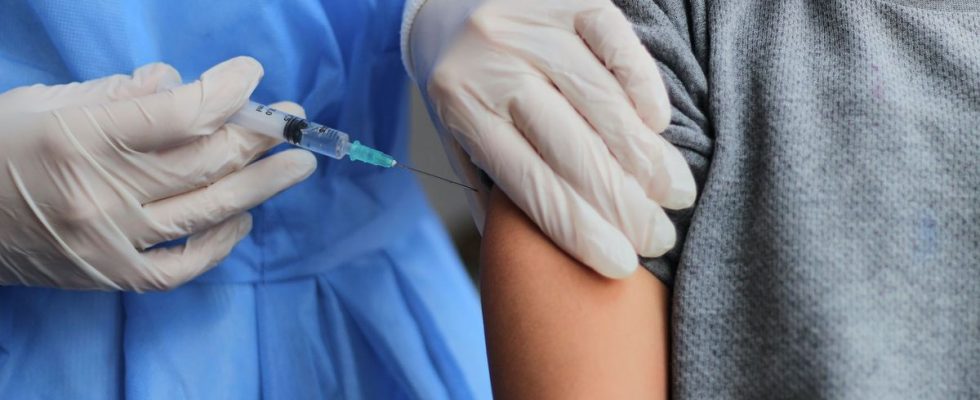Published on
Updated
Reading 3 min.
Despite a vaccination campaign against the papillomavirus wanted by Emmanuel Macron himself, only one fifth grade student in ten has received a first injection since the start of the school year. Find out the reasons for such failure.
The large vaccination campaign against the papillomavirus was announced by President Emmanuel Macron: from the start of the 2023 school year, all 5th grade middle school students could benefit from this vaccine. Three months later, it is clear that the 30% objective is far from being achieved.
Less than one in ten middle school students vaccinated against the papillomavirus
According to information from France Inter, which obtained the first figures from regional health agencies, only 61,400 out of 632,000 fifth grade students in public middle schools have been vaccinated. That’s less than one in ten!
The trend should, however, be put into perspective: the data does not take into account adolescents vaccinated by their local doctor. However, we are far from the objective of 30% of 5th grade students vaccinated during the fall. The 180,000 middle school students in the private sector were not invited to the campaign, due to the refusal of Catholic education.
Distrust or poor communication?
Why did this campaign not convince parents? While every year, 6,400 new cases of cancer occur due to human papillomaviruses, and vaccination provides protection against nine types of papillomaviruses? Several hypotheses can come to mind:
- A lack of information or knowledge about the usefulness of the vaccine, particularly among boys;
- A distrust in vaccination in general;
- Fear of side effects…
Let us also remember that a schoolboy died during this campaign in his establishment. A death “unrelated to the vaccine product” but due to head trauma linked to discomfort shortly after the act. A tragedy which may also have contributed to this “disenchantment” with anti-HPV vaccination.
“A missed appointment” according to the president of the SFCPCV
What do the prevention professionals involved think? Doctissimo contacted Professor Xavier Carcopino, president of the SFCPCV (French Society of Colposcopy and Cervico-Vaginal Pathologies) to get his feelings. According to him, “it is the chronicle of a predicted failure” he said, targeting the organization of this entire campaign.
“There is no longer any school medicine, there are no longer any health professionals close to the students. Ask people outside of colleges (these are the vaccination centers which moved to the premises Editor’s note), who knew neither the teachers nor the students, who are not included in their course, to come punctually to vaccinate is already a huge obstacle. There is a lack of a real bond of proximity.”
In addition, the expert criticizes a cumbersomeness which could only further slow down student involvement. “We cannot ask permission from both parents, for everyone to agree, for the schoolchildren to be ready with their document, their notebook, without thinking that there will be mistakes. Especially since we also don’t know to what extent national education played the game, or reminded things, throughout the process.”
However, distrust in vaccination would not be the downside of this measure, for the professional. “In our experience as health and prevention professionals, anti-vaxxers exist, but are a very small minority. Most people are not resistant and are ready to have their children vaccinated to protect them as long as things are explained to them. But we made this campaign something complicated. It’s a missed appointment.”
Should we make this vaccine compulsory?
While it would ideally be necessary to vaccinate 80% of young people to really reduce cases of HPV cancer, how can we reduce the gap after this “flop”. Do we have to go through a vaccination obligation?
“It’s a political question,” Professor Carcopino replies. “The arguments are there, we have a vaccine whose safety is proven, whose tolerance is well known, which has impressive effectiveness since it can prevent more than 80% of cervical cancers, and which would give healthier population and health savings. But it’s not up to me to make it obligatory.”
For now, this first failed attempt leaves him with a bitter taste. “VS’is a huge failure because of which we forget that this campaign is not just an announcement effect but a real public health issue. Perhaps we should remember, today we have something that can prevent our daughters from experiencing cervical cancer. This is what we must insist on!”
